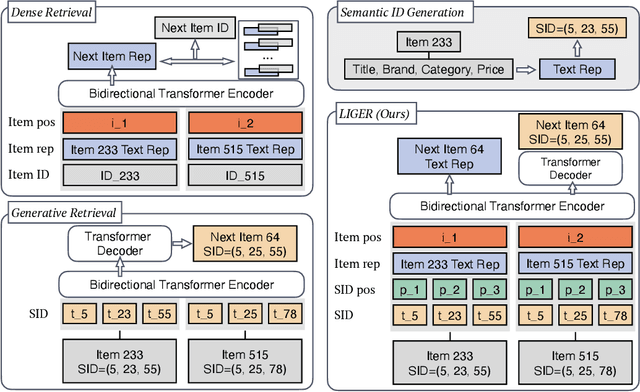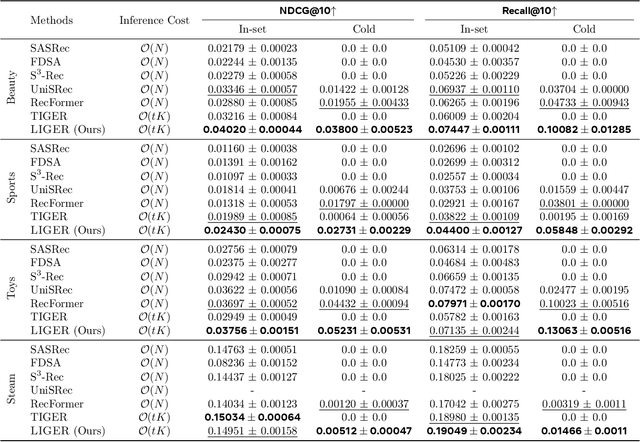Unifying Generative and Dense Retrieval for Sequential Recommendation
Paper and Code
Nov 27, 2024



Sequential dense retrieval models utilize advanced sequence learning techniques to compute item and user representations, which are then used to rank relevant items for a user through inner product computation between the user and all item representations. However, this approach requires storing a unique representation for each item, resulting in significant memory requirements as the number of items grow. In contrast, the recently proposed generative retrieval paradigm offers a promising alternative by directly predicting item indices using a generative model trained on semantic IDs that encapsulate items' semantic information. Despite its potential for large-scale applications, a comprehensive comparison between generative retrieval and sequential dense retrieval under fair conditions is still lacking, leaving open questions regarding performance, and computation trade-offs. To address this, we compare these two approaches under controlled conditions on academic benchmarks and propose LIGER (LeveragIng dense retrieval for GEnerative Retrieval), a hybrid model that combines the strengths of these two widely used methods. LIGER integrates sequential dense retrieval into generative retrieval, mitigating performance differences and enhancing cold-start item recommendation in the datasets evaluated. This hybrid approach provides insights into the trade-offs between these approaches and demonstrates improvements in efficiency and effectiveness for recommendation systems in small-scale benchmarks.
 Add to Chrome
Add to Chrome Add to Firefox
Add to Firefox Add to Edge
Add to Edge